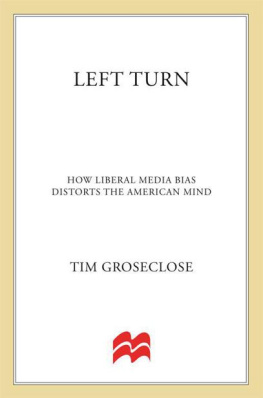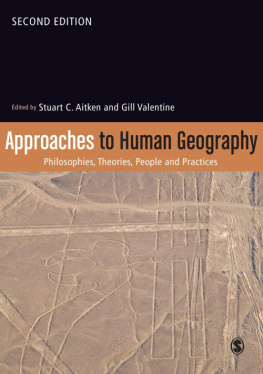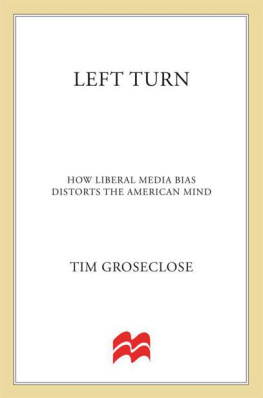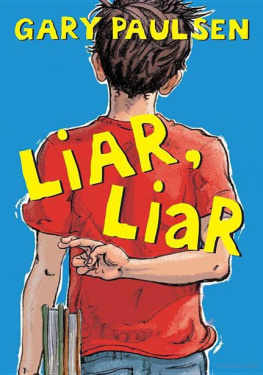Robin Aitken - The Noble Liar: How and why the BBC distorts the news to promote a liberal agenda
Here you can read online Robin Aitken - The Noble Liar: How and why the BBC distorts the news to promote a liberal agenda full text of the book (entire story) in english for free. Download pdf and epub, get meaning, cover and reviews about this ebook. year: 2018, publisher: Biteback Publishing, genre: Non-fiction / History. Description of the work, (preface) as well as reviews are available. Best literature library LitArk.com created for fans of good reading and offers a wide selection of genres:
Romance novel
Science fiction
Adventure
Detective
Science
History
Home and family
Prose
Art
Politics
Computer
Non-fiction
Religion
Business
Children
Humor
Choose a favorite category and find really read worthwhile books. Enjoy immersion in the world of imagination, feel the emotions of the characters or learn something new for yourself, make an fascinating discovery.
- Book:The Noble Liar: How and why the BBC distorts the news to promote a liberal agenda
- Author:
- Publisher:Biteback Publishing
- Genre:
- Year:2018
- Rating:5 / 5
- Favourites:Add to favourites
- Your mark:
- 100
- 1
- 2
- 3
- 4
- 5
The Noble Liar: How and why the BBC distorts the news to promote a liberal agenda: summary, description and annotation
We offer to read an annotation, description, summary or preface (depends on what the author of the book "The Noble Liar: How and why the BBC distorts the news to promote a liberal agenda" wrote himself). If you haven't found the necessary information about the book — write in the comments, we will try to find it.
The Noble Liar: How and why the BBC distorts the news to promote a liberal agenda — read online for free the complete book (whole text) full work
Below is the text of the book, divided by pages. System saving the place of the last page read, allows you to conveniently read the book "The Noble Liar: How and why the BBC distorts the news to promote a liberal agenda" online for free, without having to search again every time where you left off. Put a bookmark, and you can go to the page where you finished reading at any time.
Font size:
Interval:
Bookmark:
To Sarah, Nancy and Alice, whose love
and support sustain me.

D EAR READER, INDULGE ME for a few moments and enter into a thought experiment. Suppose you were to land in Britain from outer space, an alien explorer with no foreknowledge of the country, no understanding of its culture or history, how would you go about trying to make sense of the place? A useful place to start might be to try to determine where authority lay. Whos in charge here?, the alien wants to know, deploying that intergalactic travel clich, Take me to your leader. But unravelling the question what makes this place tick? yields a very complex answer with many ambiguities and conundrums.
Perhaps our alien would seek out and consult some constitutional expert to guide them through the formal structure. They might be told that Britain, aka the United Kingdom, is a constitutional monarchy, and that all power is exercised in the name of the monarch. They would hear how the Crown is a hereditary institution, with kingship passed down through the family line; that usually the monarch is male, but can be female if the family tree so dictates. It would then have to be explained that although the monarch is the head of state from whom all authority notionally flows, in reality, the individual sitting on the throne exercises almost no executive power.
Real power, they would learn, lies in the hands of Parliament (and its legislature), which passes laws in the monarchs name; and that Parliament is the domain of people we call politicians, and that these people are elected by the ordinary citizens who, periodically, are asked to vote to elect those they favour. This system, we call democracy. We would have to introduce our visitor to the idea of the rule of law, which embodies the important principle that, once Parliament has legislated, everyone in the country is subject to the law no one is above it and that this system relies upon an acquiescence by all, even those who oppose certain specific laws.
This explanation, though, is far from comprehensive; to make sense of how democracy works the whole question of political parties would have to be untangled as well as an elucidation of what parties actually are. Namely, that they are voluntary groupings that coalesce around certain abstract philosophical and economic ideas. We would have to explain that, while all parties are to a certain extent tribes that stick together in the face of opponents, some of the smaller parties, like the Scottish National Party and Plaid Cymru are much more tribal, and are largely concerned with group identity. At some point our constitutional expert would also have to try to outline that the foregoing explanation applies only to the House of Commons, and that, when it comes to the Upper Chamber, a whole different set of sometimes illogical rules apply. Luckily our alien is equipped with massively powerful cognitive abilities, so all this information can be taken in without trouble; they are, after all, only seeking to understand what the system is they are not trying to interrogate our constitutionalist expert about any anomalies or inconsistencies.
So, Parliament, democracy and the rule of law succinctly explained, there we have it: that is where authority lies in contemporary Britain. Not so fast, alien truth seeker. We have many levels of complexity yet to unravel. There is, for instance, the European Union, and its authority superimposed on our domestic arrangements. It is true, we seem to be on our way out of that particular structure, but there are other international organisations of which the UK is a member, which can also lay claim to some authority in certain areas of life. The UN, NATO, the International Court of Justice, and so on: a whole host of organisations which can exercise some degree of authority. And then there are referendums those occasional plebiscites that test the public will on matters of importance.
And so our visitor would come to see that though preeminent, Parliaments authority is not absolute. And at this point, it would have to be explained that the account given so far only covers the formal structures of power. To understand why that power is exercised in the way it is we would have to introduce our alien visitor to another concept, which we might term moral authority. That is to say, the authority which flows from our understanding of fundamental truth. A grasp of this particular concept is necessary to comprehend why the politicians who we elect do what they do; and to understand the mechanisms by which the legislature is guided, so that it is in accord with the popular will. So, for instance, we hold it to be a fundamental truth that no individual can be executed by the state because we have decided that it is always wrong for the state to kill its own citizens. But from where does such a belief come? Not from the popular will, which has always been in favour of the death penalty; although support for the death penalty has been slowly declining and dipped below 50 per cent for the first time in 2015, according to recent figures. And if you discount the undecided, those wanting its reintroduction outnumber opponents by 45 per cent to 39 per cent. So, answering this question introduces a level of complexity quite above and beyond anything which our back-of-the-envelope introductory course on the British constitution has so far attempted.
From where does this moral authority derive? Our alien quite understandably wants to know. Where to start? Perhaps with Christianity and the national church the Church of England and some elementary theology. At this point our alien would have to be introduced to the notion of an omniscient Creator who we call God; an entity beyond human understanding who brought our planet, and indeed the whole universe including our alien, into being through an act of inscrutable will at the beginning of the dimension we call time. One can foresee some potential problems here, but let us battle on regardless (we arent inviting a debating contest with this stranger, merely telling it how it is according to orthodox Christian teaching): God has handed down to us fundamental truths which, should we listen to our consciences, will guide our actions. But then we would have to heavily qualify this belief by explaining that the Church of England, though nominally the national church, has only a relatively small and dwindling number of members. And that, in fact, in the UK there are many other religions, some of which have significantly more committed adherents than the C. of E.
Our alien might, at this point, be forgiven for some confusion; after all, surely the national church of which the monarch is the supreme governor has some right to assert primacy in this area? The point could be argued, but not conclusively. There is no clear answer. And anyway, we would be obliged to point out that, according to polling evidence, many citizens reject this traditional idea of a Creator God along with the right of any of the many and various churches to lay claim to any moral authority whatsoever. Many Britons see themselves as secularists actively opposed to religion of all stripes and if one had to pigeonhole their philosophy, humanism might be as good a label as any.
So what moral authority do these citizens, the atheists, acknowledge? Well, that is a devilishly tricky question to answer. We would have to admit that many citizens have but little faith in the moral authority of politicians but that by way of counterbalance there is widespread support for the notion of the rule of law. While many citizens are critical of the law as it stands, and believe it should be improved in ways that accord with their own preferences (so that there is a constant debate about what the law should be), the United Kingdom is a country where there is a consensus that the law binds us all. Leaving aside criminals, who obviously reject the law, here perhaps we have arrived on solid ground. It is in the law itself that true authority resides, and the fact that our laws derive from a democratic process invests them with a kind of moral authority. But our alien is puzzled; what, it wants to know, determines what the law should be? The politicians, our expert replies, who take their instruction from the voters. And how do the voters form their view of what the law should be? Ah, now we have hit upon a further complexity.
Font size:
Interval:
Bookmark:
Similar books «The Noble Liar: How and why the BBC distorts the news to promote a liberal agenda»
Look at similar books to The Noble Liar: How and why the BBC distorts the news to promote a liberal agenda. We have selected literature similar in name and meaning in the hope of providing readers with more options to find new, interesting, not yet read works.
Discussion, reviews of the book The Noble Liar: How and why the BBC distorts the news to promote a liberal agenda and just readers' own opinions. Leave your comments, write what you think about the work, its meaning or the main characters. Specify what exactly you liked and what you didn't like, and why you think so.

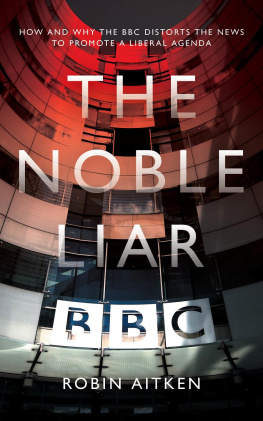
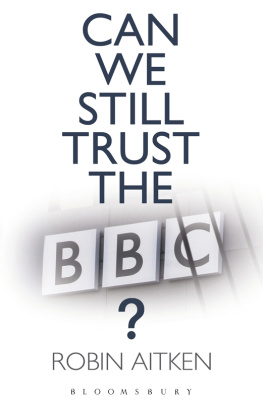
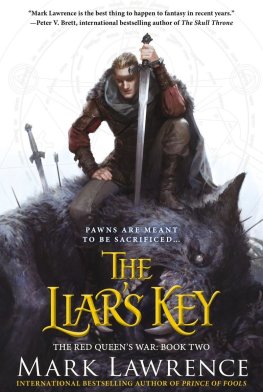
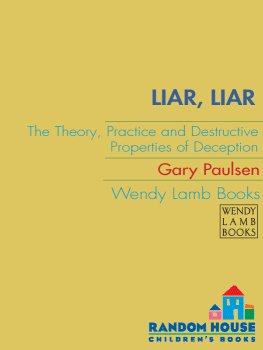

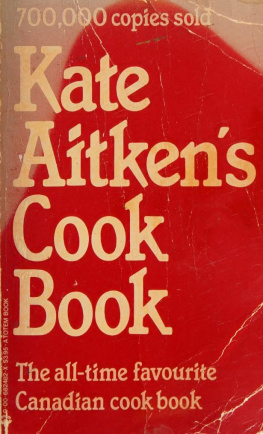
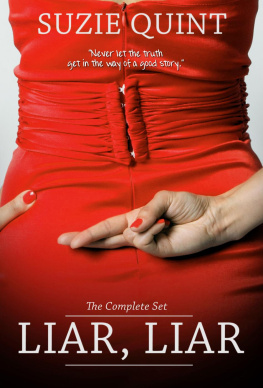

![Ben Aitken [Ben Aitken] - A Chip Shop in PoznaЕ„](/uploads/posts/book/140582/thumbs/ben-aitken-ben-aitken-a-chip-shop-in-poznae.jpg)
